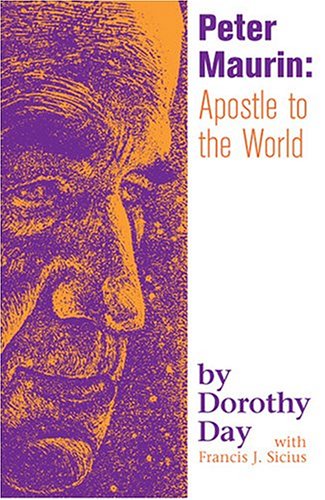Despite popular prejudices I am no enemy of RadTrads. For example, I’ve come to appreciate Rorate Caeli’s recent post-colonial turn.

What seems clear is that political radicalism and liturgical traditionalism can, and frequently do, feed off of each other.
Take, for example, the May Day episode from this Dorothy Day obituary:
She herself always said Peter Maurin was the real founder. He was a Frenchman, an old supporter of Le Sillon, who combined an untroubled adherence to Catholic dogma with a radical critique of modern bourgeois society. (This combination of social radicalism with dogmatic orthodoxy, of life among the rejected of society, the lumpen proletariat of Marx’s social analysis, with a faithful adherence to the traditional prayer and sacramental life of the Church, has been the distinguishing mark of the movement. It is this which certainly puzzles and may sometimes irritate the latest generation of liberal Catholics in North America, who are more radical in their theological thinking but less radical in their social thinking and practice.) No doubt Maurin was the principal source of ideas; but without the drive and energy and the purity of motive, without what some would dare to call the sanctity, of Dorothy Day, it seems unlikely the Catholic Worker would have first been sold on the streets of New York on May Day 1933.
Dietrich von Hildebrand’s autobiography My Battle Against Hitler I discussed here shows the influence of Le Sillon on the phenomenologist’s thinking.
Let’s not forget that Karol Wojtyla read Marx at the conclave that elected him.
It seems to me that this relationship between liturgical conservatism and radicalism has something to do with the fact that the liturgy always questions the status quo as it mediates the breaking in of God’s ever-fresh grace. Granted, I’m not identifying the aims of the Church with those of existing progressive problems. You’d have to be a truly daft reactionary to think that.












